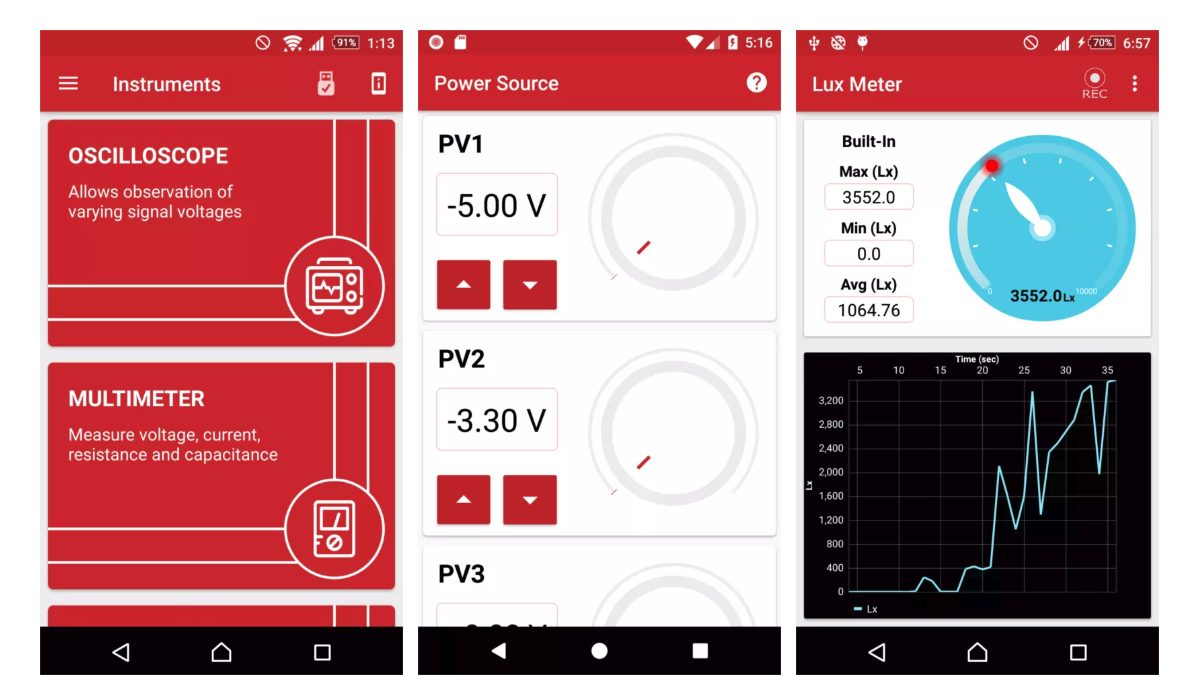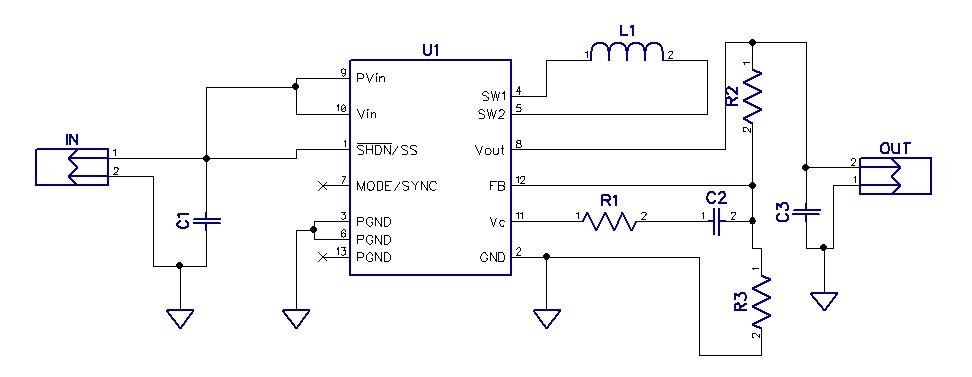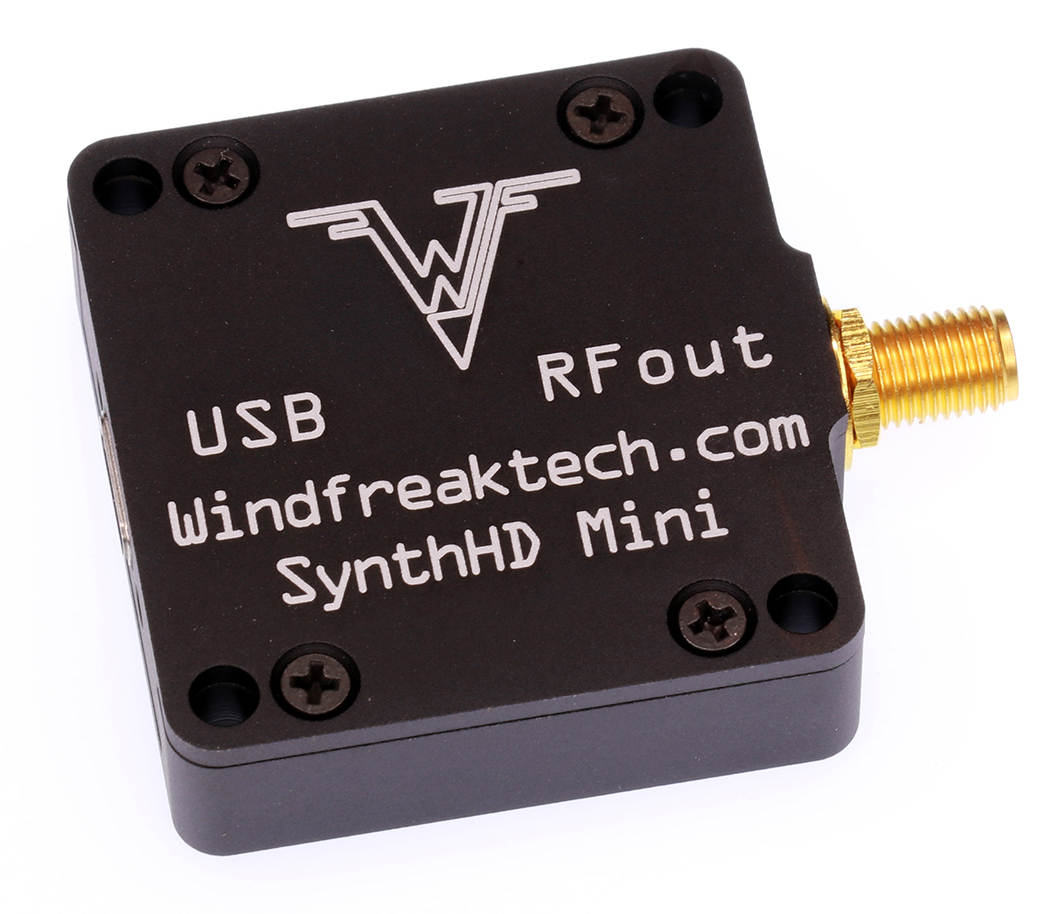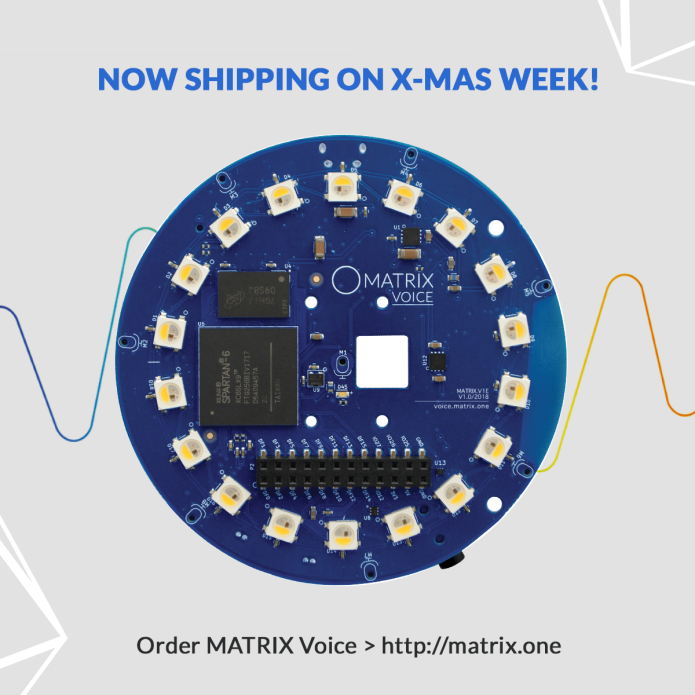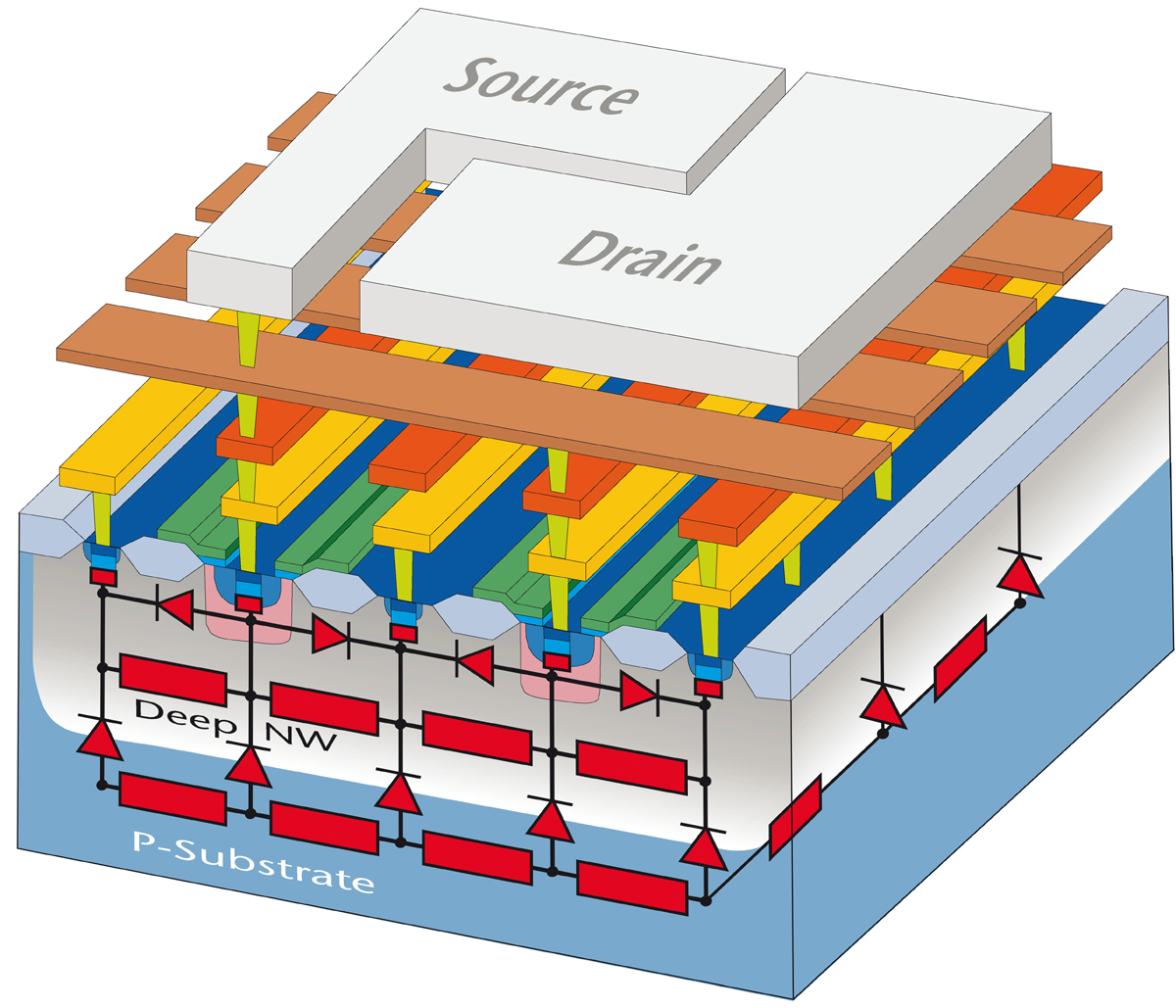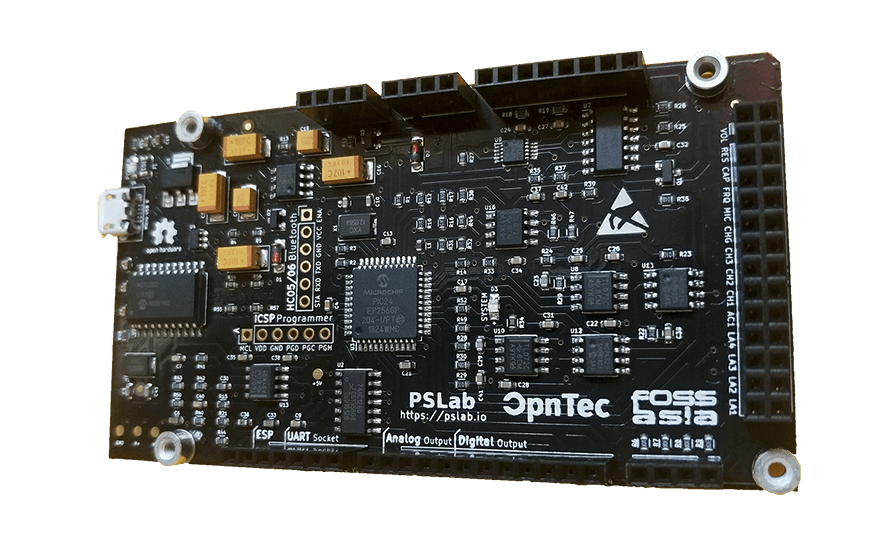
Pocket Science Lab Puts an Open Source Electronics Lab in Your Pocket
What is Pocket Science Lab
All in One Device. PSLab is a small USB powered hardware extension for your Android phone or PC that lets you measure all kinds of things. PSLab comes with a built-in Oscilloscope, Multimeter, Wave Generator, Logic Analyzer, Power Source, and we are constantly adding more digital instruments. PSLab is many devices in one. Simply connect two wires to the relevant pins and start measuring. You can use our Open Source Android or desktop apps to view and collect the data. You can also plug in hundreds of compatible I2C standard sensors to the PSLab pin slots. It works without the need for programming. So, what experiments you do is just limited to your imagination! PSLab is developed by FOSSASIA and OpnTec in collaboration with a global community of Open Source developers.
Who is it for
It can be used by anyone! Teachers, students, hobbyists, scientists, anyone who wants to know what is going around yourself.
What can it do
It can function as a.. Oscilloscope, Multimeter, Logic Analyzer, Wave Generator, Power Source, Accelerometer, Barometer, Compass, Sensors, Luxmeter and many more without the need of programming because we provide it with the software!
Which software can it be used with
Simply use our Open Source PSLab Android app from the app stores or the Python Desktop app to run your experiments.
Hardware Specifications
- 4-Channel up to 2MSPS Oscilloscope. Software selectable amplification stages
- 12-bit Voltmeter with programmable gain. Input ranges from +/-10 mV to +/-16 V
- 3x 12-bit Programmable voltage sources +/-3.3 V,+/-5V,0-3 V
- 12-bit Programmable current source. 0-3.3 mA
- Supports Advanced Plugins/Add-on Modules
- 4-Channel, 4 MHz, Logic Analyzer
- 2x Sine/Triangular wave generators. 5 Hz to 5 KHz. Manual amplitude control for SI1
- 4x PWM generators. 15 nS resolution. Up to 8 MHz
- Capacitance Measurement. pF to uF range
- I2C, SPI, UART data buses for Accel/gyros/humidity/temperature modules etc
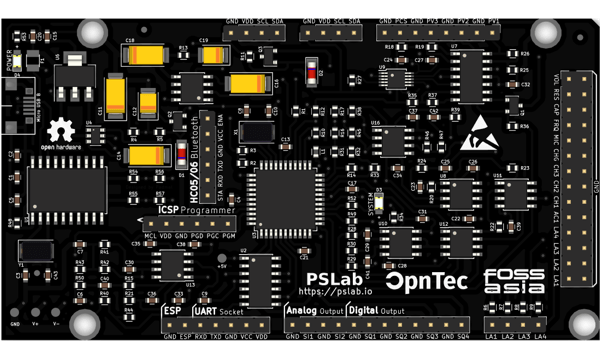
Features
Oscilloscopes
- One of the main features of PSLab is the 4-channel Oscilloscope which can monitor analog inputs at maximum of 2 million samples per second. It includes controls such as triggering, and gain selection.
Waveform Generators
- SI1: 5 Hz – 5 KHz arbitrary waveform generator. Manual amplitude control up to +/-3 Volts
- SI2: 5 Hz – 5 KHz arbitrary waveform generator. Amplitude of +/-3 Volts. Attainable via software
- SQx: There are four phase correlated PWM outputs with maximum frequency 32 MHz, 15 nano second duty cycle, and phase difference control.
Measurement Functions
- Frequency counter tested up to 16 MHz.
- Capacitance Measurement. pF to uF range
- PSLab has several 12-bit analog inputs (function as voltmeters) with programmable gains, and maximum ranges varying from +/-5 mV to +/-16 V.
Voltage and Current Sources
- 12-bit Constant Current source. Maximum current 3.3 mA (subject to load resistance).
- PSLab has three 12-bit Programmable voltage sources +/-3.3 V,+/-5 V,0-3 V. (PV1, PV2, PV3) controls
Advanced Controls
- Advanced Controls with Oscilloscope
- Data Logger
- Logic Analyzer
Other information
- 4MHz, 4-channel Logic analyzer with 15 nS resolution.Voltage and Current Sources
- SPI, I2C, UART outputs
- Graphical Interfaces for Oscilloscope, Logic Analyser, streaming data, wireless acquisition and several experiments developed that use a common framework which drastically reduces code required to incorporate control and plotting widgets.
- PSLab also has space for an ESP-12 module for WiFi access with access point/ station mode.
Everything (hardware/software) is open source, and Fossasia even lists a BOM for the hardware needed to build your own board. For those who don’t have the option of making their own, you can grab one on Seeed Studio for $64.90.






